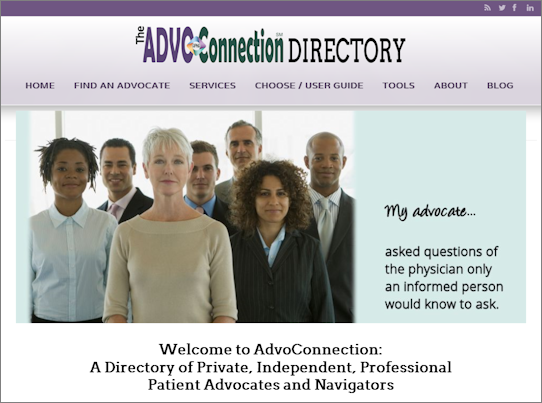Yes, Part III, as promised in our second installment when we continued with three additional attributes of successful advocates.
- Find Part I of the Dirty Dozen.
- Find Part II of the Dirty Dozen.
This week we are concentrating on marketing skills. Many readers know I believe most assuredly that no advocate can successfully establish an independent, private practice unless he or she effectively markets his or her abilities and availability. Period.
Which of these describe you and your abilities? Which of them do not? Where do you go from here?
Do your own assessment!
8. Effective marketing begins with good and consistent branding. Good branding is not just about images, logos, colors, or tag lines. Good branding is about behavior: being trustworthy, keeping promises, being consistent, showing up, following through, finding the right resources – all those important behaviors you expect from a professional.
What do you expect from the professionals in your life? Think about your interface with your lawyer, your hairdresser, even your auto mechanic. Whatever those attributes are – your clients and almost-clients expect them from you, too. And they aren’t about logos or tag lines – they are about the professionalism of their work.
Consistency is the key to good branding; it breeds trust. Be sure that both your imaging and your behavior are consistent – always recognizable and trustworthy.
- Read more: The Health Advocate’s Basic Marketing Handbook
- Read more: Santa Can Teach Us Advocates Plenty About Good Branding
9. Especially in the early days of establishing your practice, you must become a public speaker. Put yourself in front of groups of potential clients or influencers, large and small. Share information that is useful and interesting to them that can also showcase your expertise. Then, by virtue of the fact that you’re standing in front of a group and that you sound knowledgeable, you will develop a reputation as an expert, one who will be hired as an independent advocate when the opportunity arises.
- Read more: It’s Not Marketing. It’s Teaching
- Read more: The Basics of Public Speaking for Advocates (APHA Members Only)
10. If you are relying on the web for most of your marketing, then you must blog. Period. I will tell you that 100% of the reason I was able to build my reputation as Every Patient’s Advocate, and 100% of the reason I understand the plight of patients and the needs of advocates, I credit to blogging. Over time I have started four different blogs, and I continue with two of them today. (This APHABlog and the blog at AdvoConnection, targeted to patients and caregivers.)
The reasons blogging is such a powerful tool are many. They include the fact that you must do research, talk to others, and focus on value in order to create the content for your blog. In doing so, you will learn, learn, learn from a variety of resources, and many points of view. Then, as you become a more trusted resource to those who read (or watch!) your blog, your reputation and audience will grow as you rank higher in search engines, and in the minds of readers (many of whom will become clients one day).
One of the most important aspects of blogging is that it creates a two-way conversation between you and your readers. They can comment on what you’ve said. You can capture email addresses for those with interest – then reach out to them independently. You can learn about their interests, their needs, and their capabilities.
Further, as your reputation grows, and as you interface with others who have similar interests, you will receive invitations to meet with new clients, speak at important events, or contribute to other worthwhile media. Your growth will be exponential.
My blogging is one of the ways I share my knowledge. But all that knowledge had to come from somewhere – and much of it came from the background work required to blog effectively.
- Read more: Blogging 101 (APHA Members Only)
- Read more: How to Blog (APHA Members Only)
11. Successful advocates consistently reach out to their base, with a regular email newsletter; a newsletter that is timely, interesting, promotional, and professional.
A successful newsletter requires three things:
1. A good email list: collected from those who you’ve worked with previously (as an advocate or in an earlier job), from neighbors, from those who interface with your blog, those who attend your public speaking events, the lady who you chatted up at the supermarket checkout while you both stood in line, those who attend your church, synagogue, or mosque and want to hear from you regularly – yes, anyone who will “opt in.”
2. Good content: your own blog, others’ blogs, news articles you find online, tips you develop – any material you think will spark interest and provide the answer to “WIIFM” – What’s In It for Me?
3. Consistency: A dependable schedule – because that elicits trust. Weekly, bi-weekly, monthly – whatever works for you and doesn’t seem too frequent to your readers.
- Read more: Creating an Email Newsletter to Market Your Practice (APHA Members Only)
- Read more: How to Develop a Newsletter or Email Blast to Market Your Advocacy Practice (APHA Members Only)
- Read more: The Health Advocate’s Advanced Marketing Handbook

12. The next marketing must-do for advocates is to establish a social media presence – Facebook, Twitter, NextDoor, or other social media you enjoy. But more important than enjoying it is engaging and being available! The whole point of social media is to interact (that’s what makes it social, of course!) You can post links to your blog, talk about what’s happening in healthcare news (although try to stay as a-political as possible), share news stories – whatever you think others will find of interest. Then, of course, you’ll want to promote your social media presence through all those means listed above.
- Read more: Social Media Investment – Time and Money (APHA Members Only)
- Read more: Getting Started with Social Media (APHA Members Only)
- Read more: The Health Advocate’s Advanced Marketing Handbook
OK – that’s a dozen…. but wait! There’s more!
(See my note in Post #1 about my inability to count… )
13. You must appear in the AdvoConnection Directory. MUST. It is the #1 resource used by potential clients to find and engage with their advocates. It allows you to share all the important and salient points necessary to help those potential clients find you and connect with you directly. All serious, successful, professional, private advocates are found in the AdvoConnection Directory.
How well does it work? Very well, for those who have spent some time perfecting their listings (with the hints and instructions we provide to do so.) Our measurement of effectiveness is the 98% renewal rate for those who are listed. They wouldn’t renew if it wasn’t working for them.
Here’s how you can join us if you’re not already listed.
Next week: Part IV of The Dirty Dozen of What Makes a Successful Advocate?
LEARN ABOUT APHA MEMBERSHIP | MORE REASONS PATIENTS NEED ADVOCATES | MASTER LIST OF PRACTICE RESOURCES







Trisha,
Part III has been a treasure trove of information and great reminders! Thank you! Many great reminders that we need to keep reinvesting in our practices on a routine basis. Once you get busy as an advocate is never a reason to stop marketing. I spent my career in healthcare sales, I can speak from experience. You must continue to “load the pipe”. This will ensure referrals continue to come in and build a consistent base of new referrals.
Thank you,
Sandy Thigpen
PersonalSeniorAdvocates.com